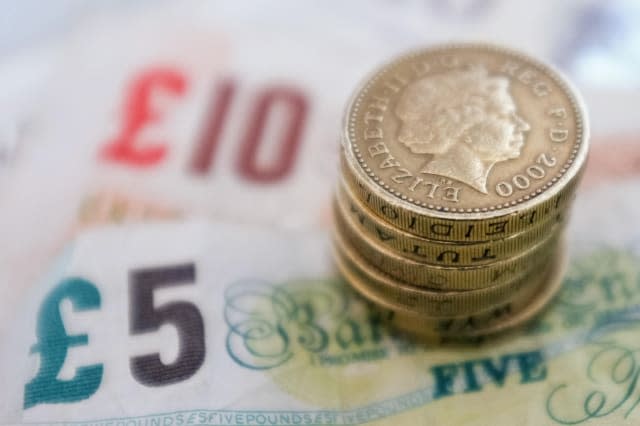Inflation is a financial disaster for pensioners

Inflation has now risen to 1%, and the experts say this is just the first of many hikes. It's hardy surprising, because the fall in the value of the pound means that the cost of everything we import has gone up, and because that includes fuel, it affects absolutely everything we consume. It's not great news for anyone, but for pensioners it's a disaster.
There are three things that mean entire retirements can be destroyed by inflation. The first is the same pressure hitting everyone - the rising cost of living. This is particularly hard for people on fixed incomes - who cannot earn more money in order to meet this rising cost, and who simply have to cut back even more. Many of them have already cut expenses to the bone, so the real risk of a choice between heating and eating raises its ugly head again this winter.
Eroded pensions
The second horrible impact is the effect on retirement incomes. In recent years, as annuity rates fell dramatically, pensioners started having to make uncomfortable compromises. In many cases, they decided to buy an annuity that would mean higher initial monthly payments - in return for severing the link to inflation. While inflation was at roughly zero, it meant very little, but as it rises, people will be living on less and less in real terms every month. Over the years, given sustained inflation, this could easily mean the value of pension payments erode by half or more.
Aegean has published its Golden Age of Retirement report and found that inflation is the biggest financial concern of all for pensioners aged between 65 and 74 - and is a real worry for a third of pensioners in this age group. They are more alarmed about the threat of inflation than either care costs or changes to the state pension.
Destruction of savings
The third crushing blow is that this inflation is coming at a time of very low interest rates. For people with enormous mortgages, this is actually a great thing. It means they continue to pay very little interest, but the amount of money they owe in real terms is getting smaller and smaller. For those who have savings - including most retirees - this is a disaster. It means there is exceptionally little chance of finding a savings account that keeps pace with inflation (after tax), so effectively your savings are losing value every day.
Richard Wazacz of the peer-to-peer lending platform, Octopus Choice, says: "Savers must be feeling like they sinned in another life. In an entrenched low interest rate environment, rising inflation is rubbing salt in the wound of anyone with money held in cash."
"The combination of poor returns on cash and rising inflation means that, in real terms, people's savings are evaporating, not growing. And with Bank of England Governor, Mark Carney, saying he is prepared to let inflation overshoot the official 2% target, there is no obvious end to the pain in sight."
Hope?
The only light at the end of the tunnel for retirees comes from Ben Brettell, Senior Economist at Hargreaves Lansdown, who argues that this is a blip. He says: "The bigger picture is that structurally there are very few inflationary pressures – due in part to demographic reasons. The baby boomers are starting to retire in their droves. They have already gone thorough their consumption phase – they have bought their houses, cars and consumer goods. The generation behind them is saddled with debt and struggling to get on the housing ladder. There is also no sign of any tightness in the labour market, with wage growth seemingly set to remain depressed. All this should mean less inflationary pressure, lacklustre economic growth, and little upward pressure on interest rates."
Of course, this theory still involves us going through the pain barrier of not being able to afford to maintain our lifestyles, and therefore cutting back on demand, before inflation settles again - which somewhat takes the shine off this particular silver lining.




